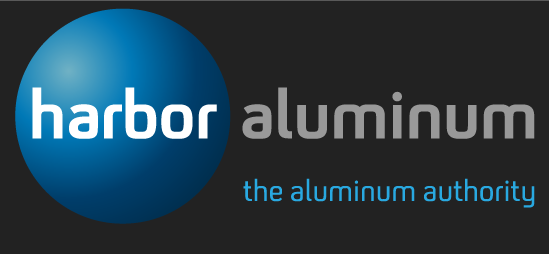3003 Aluminum Guide (Properties and Applications)
Aluminum is one of the most abundant elements on earth. The element is found in many different minerals but is often extracted from bauxite. On its own, aluminum is a light, soft, ductile metal. Pure aluminum is too weak to be used as a structural material, so it must be alloyed with other substances to make it strong enough for building and construction and other commercial uses.
In general, alloys are made by melting together two or more elements at high temperatures and casting them into the desired shape. Many producers select alloys for their strength, hardness and resistance to corrosion. The production of 3003 aluminum alloy achieves all of these. Keep reading to learn more about 3003 aluminum's uses and properties. To get the latest information on the aluminum industry right in your inbox, subscribe to HARBOR Aluminum's market intelligence reports.
What Is 3003 Aluminum?
3003 is one of the most widely used aluminum alloys in the world and an excellent choice for a wide range of applications.
3003 is part of the 3XXX family of aluminum alloys which are composed of commercially pure aluminum with the addition of manganese and copper. These alloys possess good corrosion resistance and strength at elevated temperatures. The 3003 aluminum alloy contains approximately 1.2% manganese, 0.12% copper and 98.6% aluminum.
3003 Aluminum Properties
3003 aluminum is a non-heat treatable alloy with many benefits, making it an ideal choice for many applications. Six 3003 aluminum properties that make this material so valuable include:
1. Corrosion Resistance
Corrosion resistance indicates that a material can resist corrosion or the tendency to deteriorate when exposed to chemicals or environmental attacks. Superior corrosion resistance is the defining quality of 3003 aluminum, as it has excellent longevity when exposed to water, air and other media.
This attribute of 3003 aluminum comes from the natural development of a thin oxide film on its surface. This oxide layer helps protect the metal from corrosion and reactions between oxygen and the metal during everyday use.
2. Machinability
Machinability refers to the ease with which a metal can be machined. The more machinable a material is, the easier it is to cut, drill or shape it into the desired form. 3003 aluminum is an excellent example of a highly machinable metal.
3. Strength
In its pure form, aluminum offers low strength, which means it cannot withstand much stress or pressure. 3003 aluminum is stronger, though its exact strength depends on several factors, including chemical composition and temperature. Manganese can be added to the metal to increase its ultimate tensile strength to around 29,000 psi — which is often 20% stronger than pure aluminum. If desired, you can also harden the material by cold working, which manipulates it below its recrystallization temperature.
4. Thermal Conductivity
Thermal conductivity in metals refers to the heat transfer rate through a material. The thermal conductivity of 3003 aluminum stays at approximately 193 W/m-K, making it an excellent conductor of heat and capable of quickly dissipating it. However, this metal alloy is not heat-treatable.
5. Weldability
Weldability is the ability of a metal to be welded without burning, melting, or producing excessive heat. For parts requiring a medium hardness and good weldability, 3003 aluminum is an excellent choice. You can weld 3003 using standard techniques like gas tungsten arc welding (GTAW), gas metal arc welding (GMAW) or shielded metal arc welding (SMAW).
6. Workability
3003 aluminum has a high degree of workability, meaning you can easily shape, form or otherwise work the material without breakdown. This alloy's excellent formability helps it maintain structural integrity, and it has an appropriate balance between yield strength and tensile strength. Manufacturers can form it using conventional hot or cold working methods.
What are the Uses of 3003 Aluminum?
3003 Aluminum is a general-use alloy found in a wide range of applications, including:
Culinary
Cooking utensils, food containers and cookware require solid, heat-resistant materials that won't warp or melt at high temperatures. 3003 aluminum is perfect for these applications because it resists corrosion and oxidation when exposed to heat or water over long periods.
Construction
Aluminum is a popular material for construction because it's lightweight and durable. The ability to mold it into different shapes makes it highly desirable in this industry, where it often serves in hardware like hinges, locks and folded sheets. Aluminum garage doors are also an increasingly popular option for their energy efficiency and ease of installation.
Decorative parts
The soft, malleable nature of this metal makes it ideal for intricate, ornate designs. It can be worked into shapes and treated to keep it from warping or bending.
Ductwork
Duct work is one of the most common applications for 3003 aluminum because it's lightweight, easy to work with and strong enough to withstand high temperatures without breaking down over time.
Gas lines
The 3003 alloy is widely used in manufacturing gas lines due to its high strength and relatively low cost. The main advantages of using this type of aluminum include corrosion resistance and formability.
Roofing
3003 aluminum can cover both flat and pitched roofs. The sheets remain flexible enough to withstand wind gusts or heavy snowfall while providing a corrosion-free, weatherproof barrier.
Heating and cooling systems
While 3003 aluminum has several applications, it is particularly suited for heating and cooling systems. Radiators are made from this metal because it is light and thermally conductive. You'll also find air conditioning evaporators, car radiators and heat exchangers made from 3003 aluminum.
Contact the Experts at HARBOR Aluminum for More on the 3003 Market
What does the future hold for aluminum pricing? What might your industry look like in 10 years? At Harbor Aluminum, we know every company has different needs and goals. That's why we offer a wide range of services tailored to meet them, including specialized market forecasting, industry insights and expert consulting. Inquire for aluminum intelligence at HARBOR Aluminum today!
